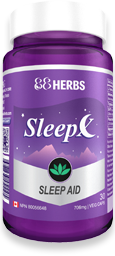Leg Cramps at Night – Type of Magnesium that Actually Works!


Millions of men and women (especially those over 50 years old) get painful leg cramps almost every night. Most often they are harmless, except for the fact that they really hurt and will ruin your otherwise peaceful sleep.
These nocturnal leg cramps feel like a sudden tight and painful knot in the calves, feet, quads, or hamstrings. They make us jolt out of bed in agony.
.
Magnesium Consumption
Most of us are not consuming enough magnesium through our diets. We also lose a lot of the magnesium we do get from sweating, poor absorption, excess sugar or caffeine intake, and even aging. This is why this condition gets more and more common as we age.
We also get too much calcium (which makes muscles contract) compared with our magnesium intake (which makes muscles relax). This out of whack calcium to magnesium ratio leads to a buildup of lactic acid and painful muscle cramping of the calf and other leg muscles.
This article from Harvard Health discusses some common causes of muscle cramping. It mentions that cramps can occur from “a deficiency of magnesium”. It also mentions that dehydration can make the cramping worse (more on this below).
What does the science say about taking supplemental magnesium for leg cramps, and why is it confusing and misleading?
There is a lot of misinformation about magnesium supplementation. It is essential to always keep in mind that magnesium supplements come in many different forms (such as bisglycinate, citrate, oxide). All of these forms are different and they should never be discussed interchangably. Since each form is different and has different effects on the body, we should always discuss the specific form of magnesium and not talk about “magnesium” in general terms.
When one specific form of magnesium is studied for something, all too often we hear inaccurate conclusions discussing magnesium supplementation “in general”. Here is a perfect example. The study below talks about magnesium oxide only, but based on this study Reuters put out a press release with the title talking about “magnesium” in general rather than mentioning the specific form. This can, and did, lead to false conclusions.
Here is a link to that double blind study of 94 adults taking either magnesium oxide or a placebo to see if it helped with leg cramps. It concluded that:
magnesium oxide is: “not significantly better than placebo for alleviating nocturnal leg cramps.”
The key is that this study is discussing magnesium oxide only. It tells us nothing about other forms of magnesium and how effective they may or may not be with regards to leg cramps. This is unfortunately not surprising because it happens all the time.
Most magnesium supplements do not absorb very well at all. In fact the most common magnesium supplement on the market is magnesium oxide, which absorbs at a rate of only about 4%. The remaining 96% draws water into the large intestine and causes diarrhea as an unwanted side effect. Because it doesn’t absorb well, it won’t help at all with leg cramps. Furthermore, because magnesium oxide causes diarrhea, a lot of people lose significant amounts of water when taking it. This can lead to dehydration, which as mentioned above, makes the cramping worse.
Here is a study showing the very poor 4% bioavailability (absorption) of magnesium oxide
Here is a very interesting study showing that magnesium bisglycinate is effective for treating leg cramps in pregnant women.
The interesting thing that a lot of people missed when analysing these two studies is that the first study looked at magnesium oxide for leg cramps and found it ineffective, whereas the second study looked at magnesium bisglycinate for leg cramps in pregnant women and concluded that it was effective.
Do you see the mistake here? It is clearly not an apples to apples comparisson. Another way to look at the same data would be to say we have evidence that magnesium bisglycinate is effective for leg cramps, whereas magnesium oxide is not. This may have nothing to do with pregnancy at all. It may have just so happened that the pregnacy study used bisglycinate whereas the other study used oxide instead.
This interpretation makes sense because magnesium bisglycinate absorbs very well. It also doesn’t cause diarrhea and therefore it won’t cause dehydration.
Furthermore, not all magnesium bisglycinate (glycinate) supplements are the same. In fact, most magnesium bisglycinate (glycinate) supplements actually are combined with magnesium oxide. This is called “buffered”. Most of these supplements won’t mention this on the label either. To learn more about this here is a very detailed article on magnesium glycinate.
The most effective natural treatment for leg cramps is to take a very high absorption, non-buffered magnesium bisglycinate supplement every night before bed. There are many different types of magnesium on the market and it’s important to understand the difference and know which type to choose and why.
We sell a very specific type of magnesium (non-buffered magnesium bisglycinate) to literally thousands of customers every month all over the world. Our magnesium has been proven to help with muscle function. We pay a lot of attention to their feedback and one of the most common things we hear is that our magnesium has really helped with our customers with significantly reducing the frequency and the intensity of their leg cramps. Many people say that they no longer get any leg cramps at all after taking our magnesium. It is also very gentle on the stomach and won’t cause any diarrhea either.
Our non buffered magnesium bisglycinate is a combination of the magnesium atom and the amino acid glycine. Glycine is a very relaxing amino acid which further helps with sleep and relaxation. This form of magnesium won’t draw water into the bowels (and won’t cause loose stool) but will instead absorb into our muscles and tissues.
Dose:
It is safe to take up to 6 capsules per day of our magnesium, but because it is so highly absorbable and well tolerated, most people benefit from only 1-2 caps per day.
Go here to try our premium magnesium for leg cramps
Read this for more detailed information on magnesium dosing











